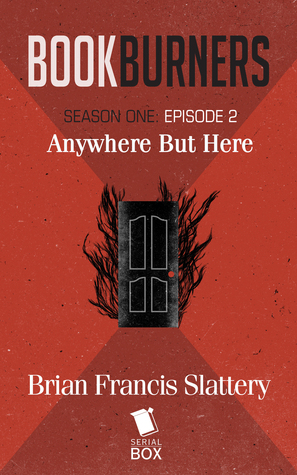Bookburners:
Episode 2
By Brian Francis Slattery, Max
Gladstone, Margaret Dunlap, and Mur Lafferty
“Welcome to the Black Archives of
the Societas Librorum Occultorum. Come in. The others are waiting.”
Asanti guided Sal and Menchú
through the towers of books, talking as she went.
“The library was built in the
1400s—the architecture gives that away, don’t you think?—when the Society’s
collection grew a little too large and a little too
dangerous to have in broad daylight, or just sitting in some monastery. Take a
left. No, the other left. That’s it. We are now in the only central chamber of
the library. There are seven chambers radiating off of this one. Each one has a
small antechamber, with the larger rooms beyond that. Just in case something
gets out in the library, you understand, and we need to seal it in.”
Sal glanced back at the
staircase. Now it looked like a strand of DNA, ascending into the gloom until
it disappeared in the middle of the ceiling.
“Let me guess,” Sal said. “The
antechambers are really small, awkward spaces.”
“That’s right,” Asanti said.
“Like the room at the top of the
stairs.”
“Exactly,” Asanti said.
“The idea being that at least
some of the things that get out of the books, if they get out, are too big to fit
in those spaces.”
Asanti looked back at Menchú. “I
see why you brought her on,” she said.
“How often do they get out?” Sal
asked.
Asanti and Menchú looked at each
other.
“It hasn’t happened yet, on our
watch,” Menchú said.
“And before that?” Sal said.
“The last one was centuries ago,”
Asanti said. “We’ve learned to take far more precautions now.”
They came to the clearing Sal had
seen from the stairs. There was a wide oriental rug on the stone floor. Liam
was sitting on a couch. He gave Sal a quick, friendly smile. Grace was standing
by a coffee table, her arms folded. An easy chair next to the coffee table was
empty. Lamps balanced on stacks of books, which functioned as end tables. At
the far end of the rug was a desk, with another wooden chair behind it.
On the desk—besides still more books
and a phone that looked about fifty years old with a compact switchboard
attached to it, and a small lamp—was a faintly glowing orb, housed in a glass
case, hooked up to a contraption of wires, gears, and screens.
“What’s that?” Sal asked.
“Cuts to the chase, doesn’t she?”
Liam said.
Grace nodded with approval.
“This,” Asanti said, “is how we
get our assignments.”
“What, do you shake it up?” Sal
said. “Like a Magic 8 Ball?”
“Unbelievable that I never
thought of that before,” Liam said.
Grace and Menchú both looked at
Liam.
“What is she talking about?”
Grace said.
“It’s this . . .”
Liam mimed shaking an 8 Ball.
“What, like a cantaloupe?” Grace
said.
“No,” Liam said. “You ask it
questions, like you’re using it to tell fortunes.”
“You use a cantaloupe to tell
people’s fortunes?” Menchú said.
“No, it’s . . .”
“Can we move on, please?” Grace
said. Sal nodded. This woman is speaking
my language.
“Yes, let’s,” Asanti said. “We
just call it the Orb. It alerts us when a new magical force appears in the
world.”
“I don’t follow,” Sal said.
“It could be that some magical
event has occurred. It could be that some sort of creature
has . . . emerged from wherever they emerge from. Or that
someone has cast a powerful spell. Or it could be as simple as someone opening
a magic book.”
“Opening a book where?” Sal said.
“Anywhere,” Asanti said.
“Anywhere in the world.”

Comments
Post a Comment